Introduction of Companies
- Home
- Jeju Life
- Introduction of Companies
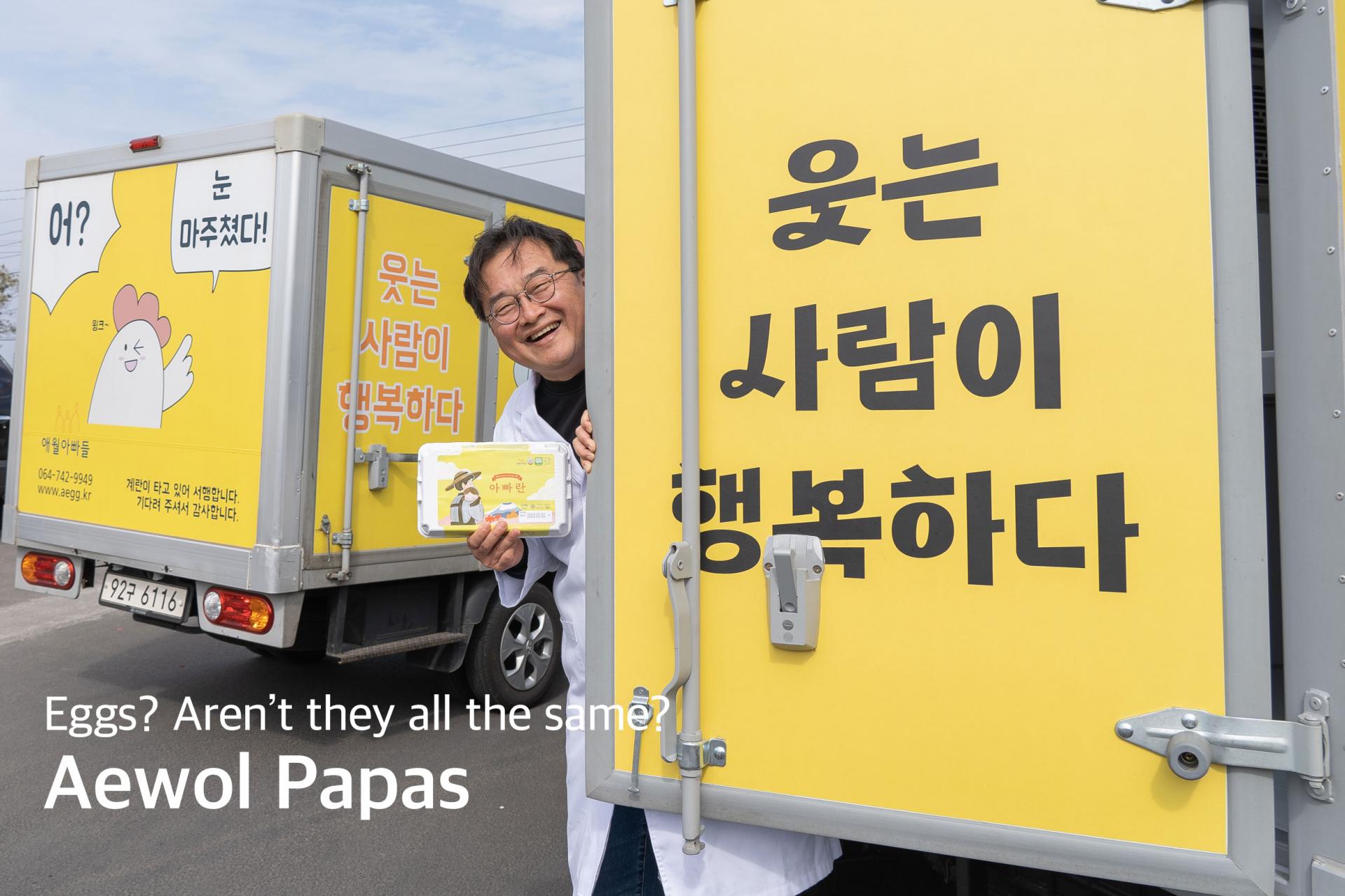
The most delicious eggs in the universe, Aewol Papas
"I believed we needed a comprehensive structure that encompasses every aspect, from production to consumer touchpoints, breaking away from the traditional agricultural framework. When my team and I focused on our strengths, we found a path and decided to start with eggs. Aewol Papas began with healthy chickens and eggs and is now evolving into a leading distributor of fresh and nutritious food in clean Jeju"
said Lee Wookgi, CEO of Aewol Papas.
|
Starting a food business with the responsibility of being a 'dad' |
A twenty-five-year-old man worked at his father’s poultry farm after serving in the military. He did it to save money to start his own business and soon found a job at a feed company. There, he mastered the A to Z of agriculture and became convinced that agriculture, which he had considered a primary industry, was a reliable business model for the future. So, thinking of his father, who ran a poultry farm when he was young, he decided to start a poultry business and established the Jeju Wellbeing Agricultural Cooperative in 2005, drawing upon the knowledge he had acquired from the feed company and the belief that the most crucial aspect for commercializing agriculture is the distribution structure. This is the story of how CEO Lee Wook-gi and other fathers founded Aewol Papas.
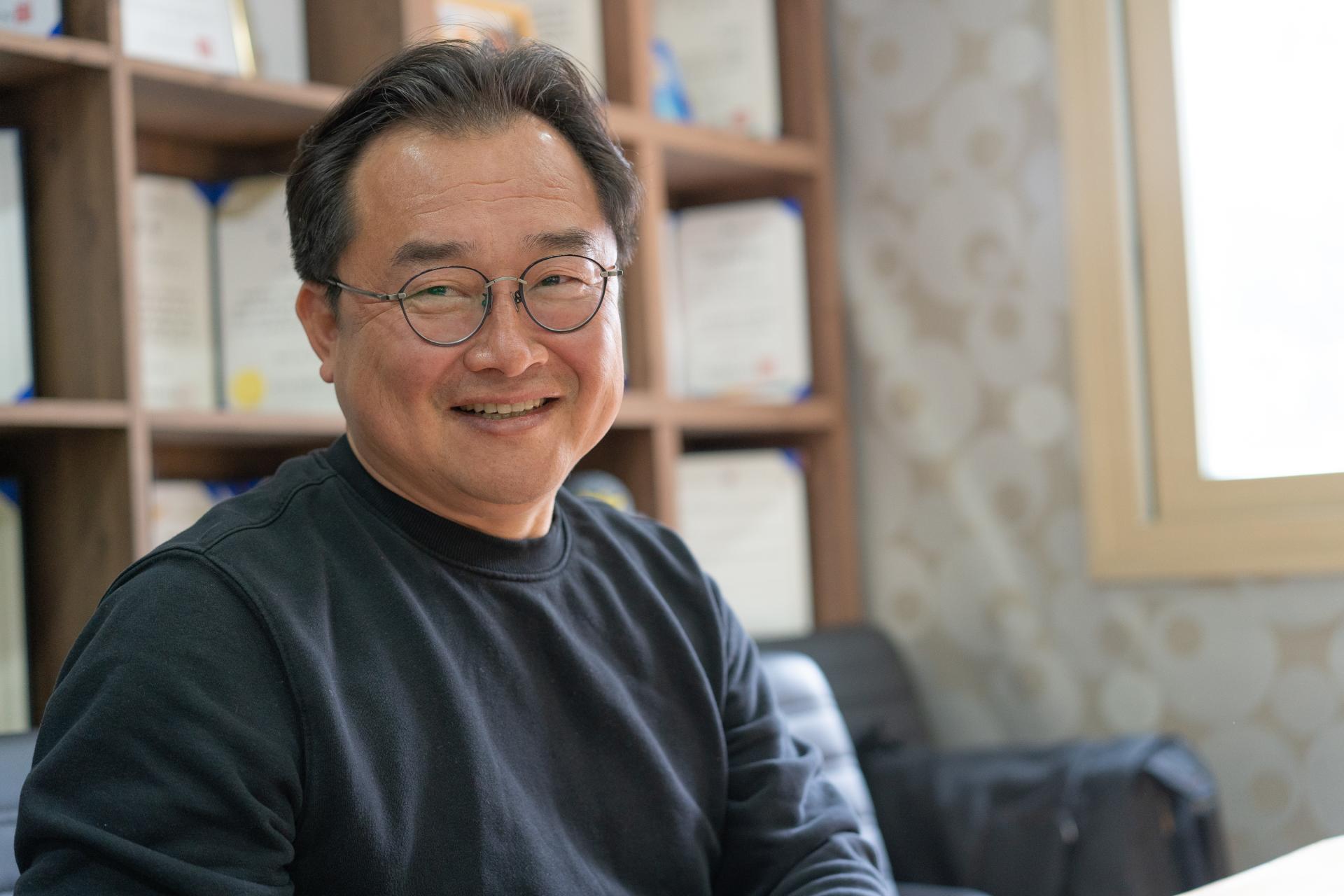
Q The word 'papas' in your brand name carries a powerful impact.
A baby's first words are ‘Papa’ and ‘Mama.’ They represent trust and reliability; when one becomes a ‘dad,’ they take responsibility for their family. I was 32 years old when I established the cooperative and had just become a father. As Jeju natives, we, the fathers who shared an interest in food and food distribution in Jeju, put our heads together. We pondered what we could do best in Jeju and decided to start with the poultry business, as it required a relatively low initial investment compared to pigs or cows. Each of us took on multiple roles in farming, distribution, sales, and more. In reality, we faced challenges in the first five years since founding the cooperative. The poultry industry is susceptible to epidemics, and improving the distribution structure was not easy. However, as fathers, we persevered for the sake of our families.
Q How did you establish Aewol Papas, which became the driving force behind the company's growth?
The Jeju Wellbeing Agricultural Cooperative is led by members dedicated to producing safe food in Jeju. Given the nature of poultry farming, it is advantageous to have farms dispersed. Therefore, five out of the seven poultry farms on Jeju Island are operated as member farms. In the fifth year of the cooperative's establishment, we needed a catalyst to propel us forward. While directly involved in the distribution network, I thought, ‘We need to enhance the competitiveness of our products (eggs).’ The name Aewol Papas is modest yet represents the dedication of our members. Since 2016, we have used the brand 'Aewol Papas' for our finest products. During this process, we drew inspiration from Jeju pork. Similar to the premium value attributed to pork from pigs raised in the clean island of Jeju, we began offering Aewol Papas exclusive eggs, including eggs coming from chickens fed with a special blend of feed made from island's pristine water and our secret ingredients and from Gueom Chicken, a native breed of Jeju. Of course, the beginning was not easy. However, consumers started recognizing our efforts in 2020. Currently, we hold a 30% share of the entire egg market in Jeju and over 90% of the fertilized egg market, establishing ourselves as a leading brand not only on the island but also in the country's premium egg market.
|
In the premium food market, making the impossible possible |
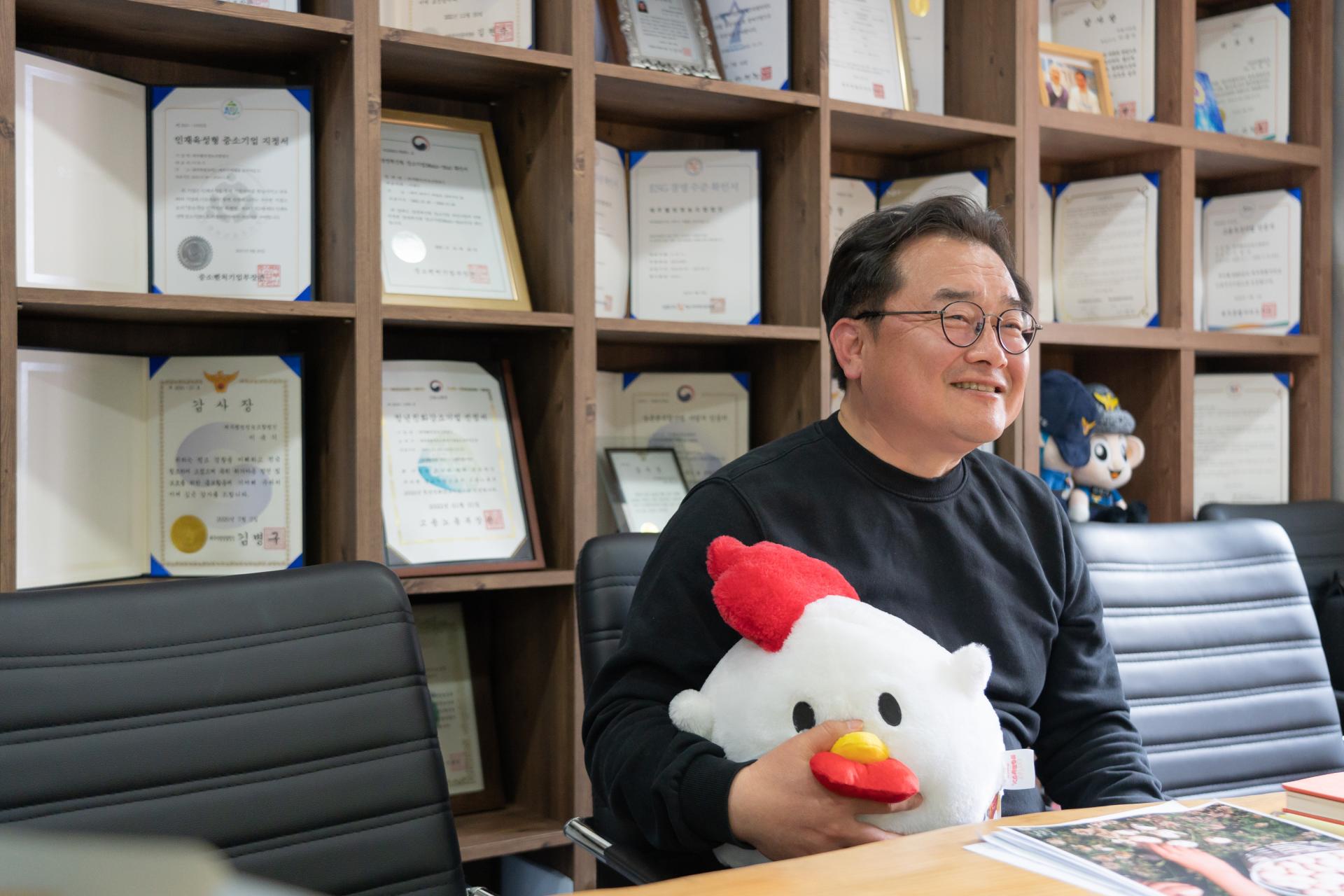
Q In the past, when it came to eggs, the only consideration for Korean consumers was the price, not the quality.
With the launch of Aewol Papas, we embarked on researching and studying the premium egg market. To turn farming into a successful business, it is essential to constantly monitor retail trends. In countries with large premium food markets, such as Europe, the Americas, and Japan, eggs are also categorized and distributed accordingly. Korean consumers have begun to prioritize healthier food options such as organic, eco-friendly, and antibiotic-free products. As many people now know, there are specific numbers on the eggs they buy. Eggs are regarded as a complete and protein-rich food, enjoyed by individuals of all ages. Today, eggs are meticulously classified. The first four digits indicate the laying date of the egg, while the final number, following a unique production farm code that starts with an English letter, signifies the breeding environment. The number 1 denotes free-range, 2 represents barn-laid, 3 indicates improved cage, and 4 corresponds to eggs from traditional chicken cages that are half the size of a piece of A4. While we are not discussing the nutritional differences between these types of eggs, there is a valid reason to choose eggs from farms that prioritize animal welfare.
Q What are Aewol Papas' premium products?
Our flagship products include fertilized eggs (Egg Number 4) from chickens fed with antibiotic-free, non-GMO grain and EM microbes feed in an animal welfare environment. We also offer eggs from Jeju's native Gueom chickens, eggs laid three weeks after the first laying, and nutritious eggs with thick yolks and high nutrient content from chickens fed with special fortified feed. Having shaped the high-end egg market for over ten years, Aewol Papas will continue to expand its offerings. With the distinctive Yellow Truck of Aewol Papas, currently operating across Jeju Island and serving as a symbol of our distribution, we plan to extend our services to the mainland as well.
|
The value of Jeju's name adds prestige |
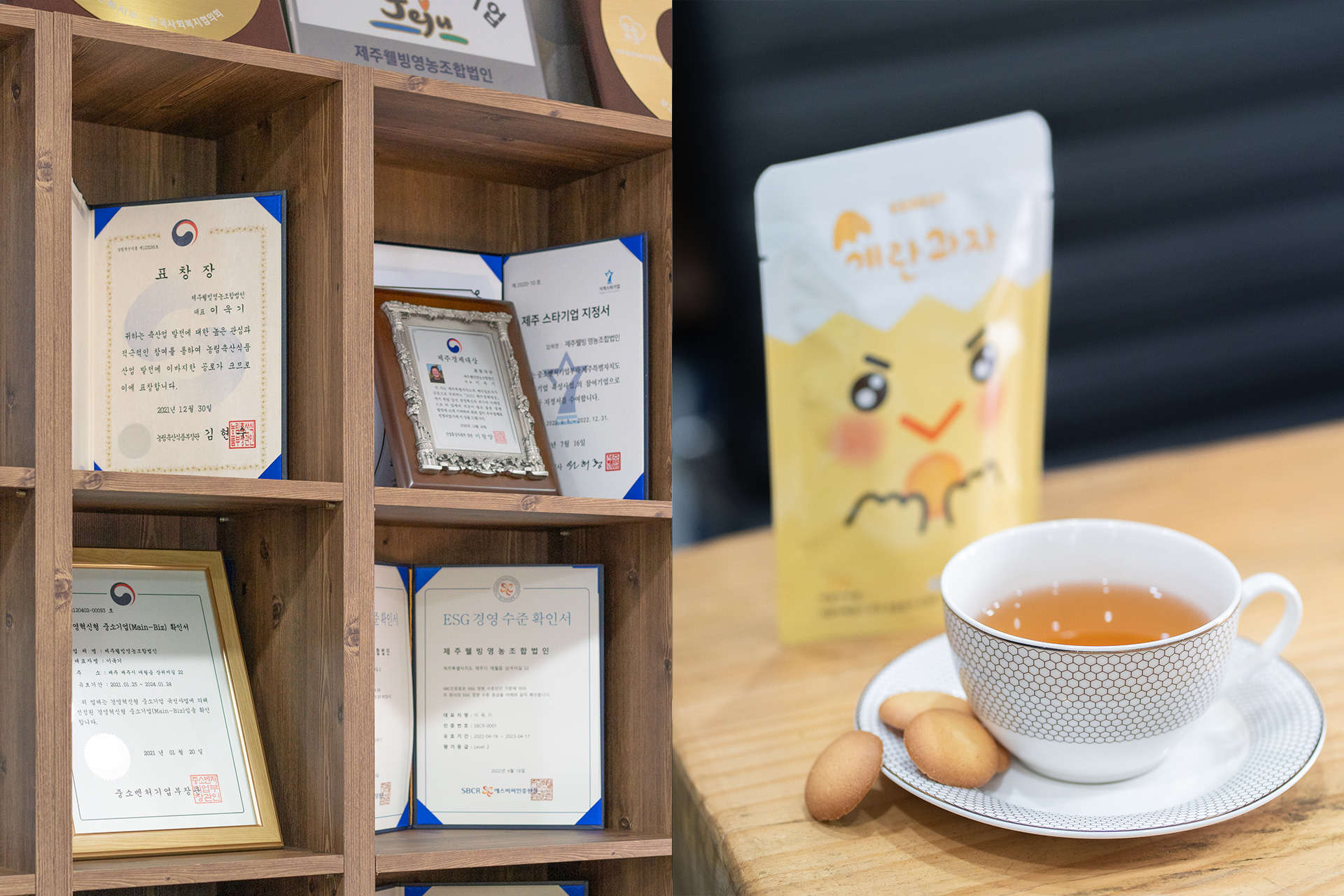
Q When doing business on Jeju Island, particularly in poultry farming, considered a primary industry, what do you believe are Jeju's appeals, and what other aspirations do you have?
Industry boundaries have become irrelevant. Farming is no longer the traditional concept we are familiar with; it now incorporates cutting-edge IT technologies such as smart farms. We, too, are conducting various trials and research to transform ourselves into a smart poultry business. We spare no expense when it comes to investing in facilities. Currently, we handpick freshly laid eggs every morning. These eggs then go through processes such as hot water washing, UV sterilization, crack detection, and blood spot detection. After being refrigerated to maintain freshness, they are shipped in a cold chain. In the future, it will be crucial to establish a sustainable ecosystem for distributing healthy and safe Jeju foods. To achieve this, securing exceptional talent is vital, as well as incorporating business approaches like marketing and expanding overseas distribution networks into agriculture. We currently have 90 full-time employees. The drivers of the Yellow Truck, who provide the Star Night Delivery service within Sinjeju and free delivery within Jeju Island, are also full-time employees. Utilizing the employment support policy of the Jeju Provincial Office, we provide tax benefits for young workers, as well as workplace accommodations support and conduct overseas workshops.
Q Where is the Jeju Wellbeing Agricultural Cooperative headed?
People are increasingly recognizing the value of food. As a result, more individuals are willing to pay a higher price for high-quality products. Food, in particular, is directly linked to health, making it a market with immense potential. Therefore, it is essential to improve the quality of our products and establish differentiated branding. Currently, eggs distributed under the Aewol Papas brand can be delivered in Jeju and nationwide through Market Kurly’s early morning delivery service. We are also making significant progress in overseas markets, including Hong Kong. Additionally, we operate a café called "R Lounge" in Yeon-dong, Jeju-si, where we offer delicious coffee and bread made with fertilized eggs that meet animal welfare standards. We also plan to open an egg research center and a poultry experience center. Furthermore, we aim to launch egg-based products such as egg sheet masks, meal kits, and egg snacks as we embark on our corporate branding journey.
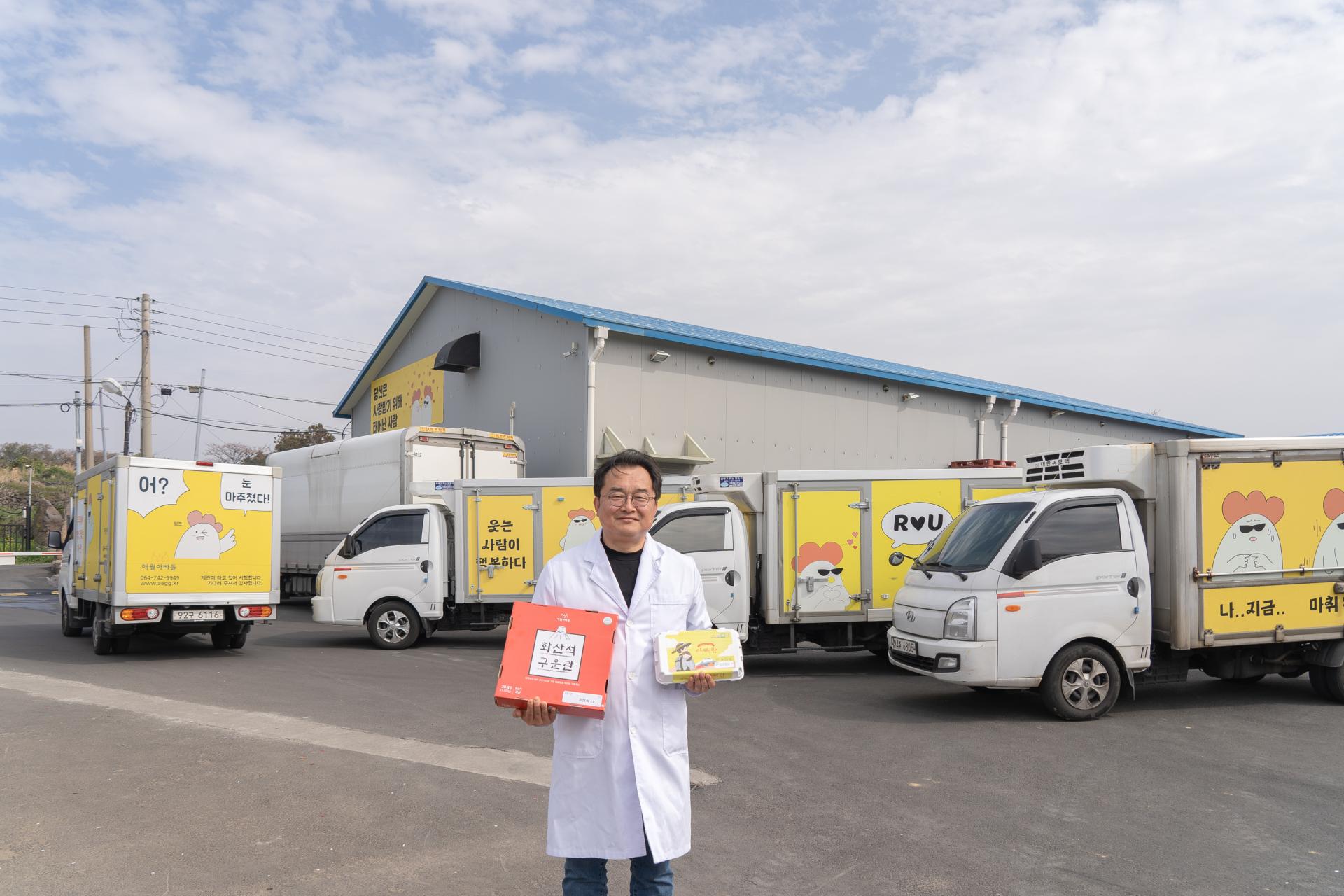
Q Lastly, could you explain what Jeju means to Aewol Papas?
Our company originated from the "hearts of fathers" who wanted to provide their families with the precious things born and raised on Jeju Island. Just as chickens share their eggs with us, our company's mission is to promote the idea of "Let's all eat well and live well." Like the chickens of Aewol Papas that thrive on island's clean water, good air, and spacious environment, we will continue to contribute to the community as we have done since our founding. This includes sharing food with nurseries and nursing homes, caring for the elderly living alone, participating in beach cleanups, and maintaining the Olle trails. Instead of merely discussing ESG management, we strive to become a healthy agricultural company that is sustainable and environmentally friendly. Lastly, I envision a future where Jeju eggs become as renowned as Jeju's tangerines and pork as a happy Aewol papa.
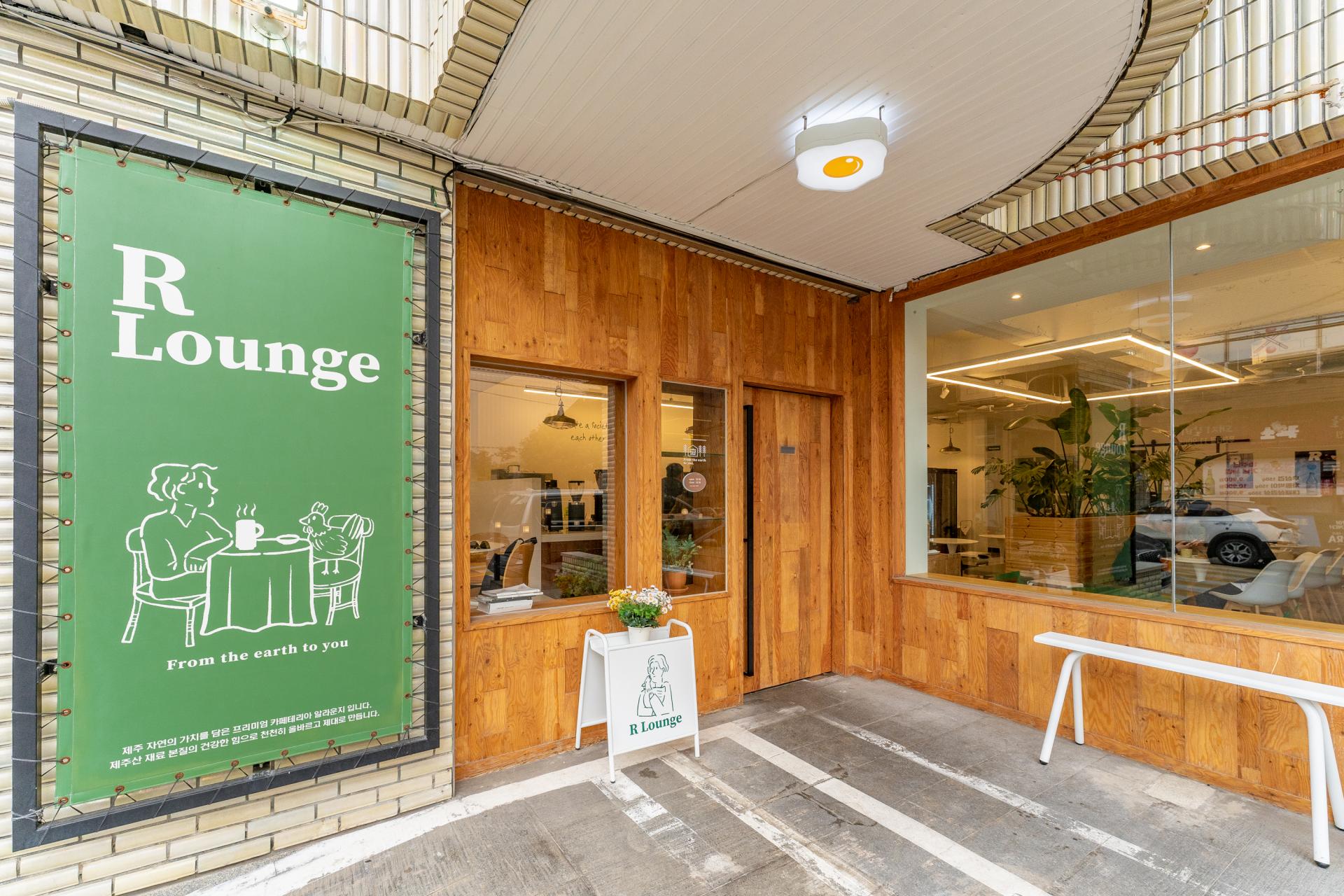
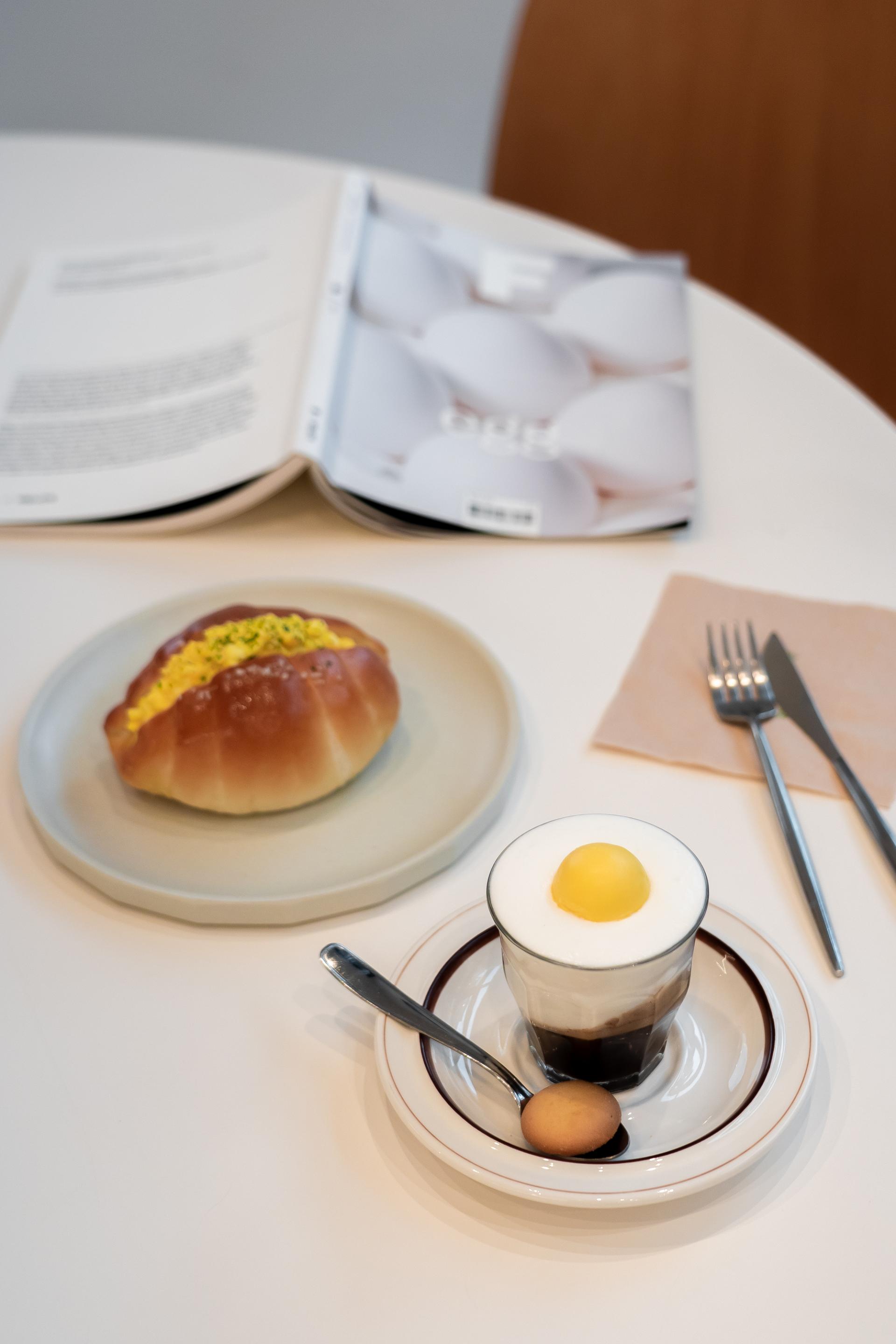
Aewol papa's cafeteria 'R lounge' at JEJU city.